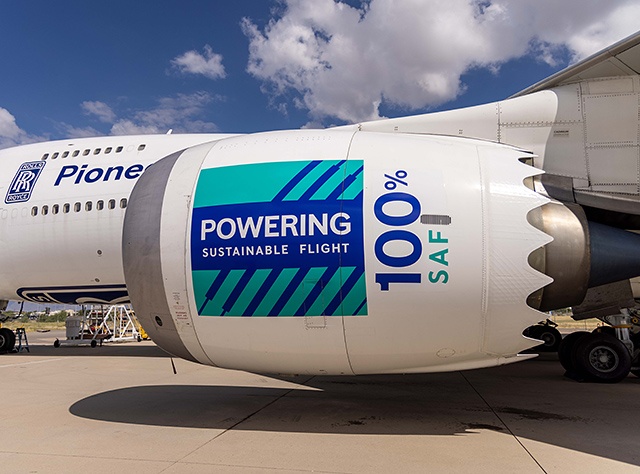
Just as the wheels touched down on Virgin Atlantic’s historic flight from London to New York yesterday, powered by a low-carbon fuel engine made by Rolls-Royce, the company has announced a new shift. Rolls-Royce CEO Tufan Erginbilgiç says it’s time to sell off its electric jet engine unit and focus on other strategies – namely sustainable aviation fuels, or SAF.
Rolls-Royce, a flagship company in Britain, makes jet engines and systems on planes such as the Airbus A350 and Boeing 787. It was among many companies hit hard by the COVID-19 pandemic when air travel was grounded, and Rolls-Royce cut 9,000 jobs as a result.
Earlier this year, the “axeman” Erginbilgiç took the helm, bringing an aggressive rethink to the company to save it while slashing divisions such as R2 Factory, an in-house artificial intelligence software unit, and a direct air carbon capture project. Last month Rolls-Royce said it would cut 2,500 management and administration jobs.
The next head to roll is its electrical business, which develops propulsion systems for flying taxis and other aircraft. In an announcement yesterday, Erginbilgiç said the company needed to make “choices on resource allocation” and that the electric business would offer “better value to a third party.”
It is all part of a sweeping effort to raise profits, and to shift gears to reach its sustainability goals. Rolls-Royce has raised its target to bring in operating profits of between £2.5 billion and £2.8 billion a year, compared with £837 million in 2022. “Rolls-Royce is at a pivotal point in its history,” Erginbilgiç said on Tuesday. “We are creating a high-performing, competitive, resilient, and growing Rolls-Royce that will have the financial strength to control and shape its own destiny.”
The company intends to move away from developing electric engines for air taxis and smaller aircraft to “double down” on its jet-fuel-burning engines for passenger planes to keep the business in good position, reports The Guardian. Future hopes of decarbonizing its products will be dependent on sustainable aviation fuels, or SAF.
While the company is also working on hydrogen technology with EasyJet, Erginbilgiç says he believes that hydrogen is a long way off from being a viable solution for long-haul flights and that sustainable aviation fuels will be the way forward for aviation to achieve net-zero climate goals. Airbus, however, is working toward having hydrogen-powered planes in service by 2035.
Rolls-Royce said it will invest the money it gains from selling the electric unit and other businesses into its next-gen UltraFan engine, an enormous aviation engine technology demonstrator designed to burn less fuel.
The company says it is working to become the first jet engine manufacturer to confirm that all of its in-production engines for long-haul aircraft and business jets are compatible with 100% SAF. Rolls-Royce aims to become net-zero by 2050.
